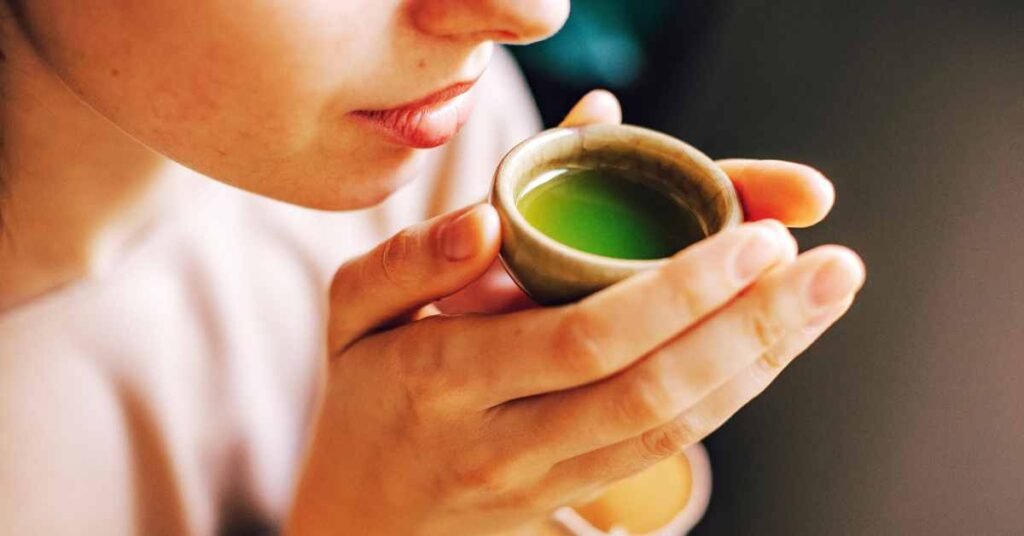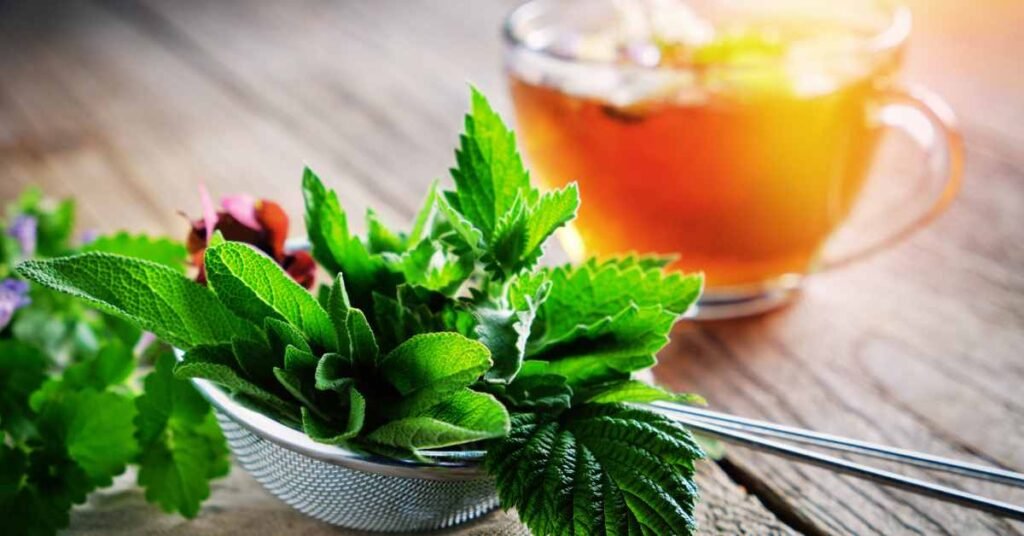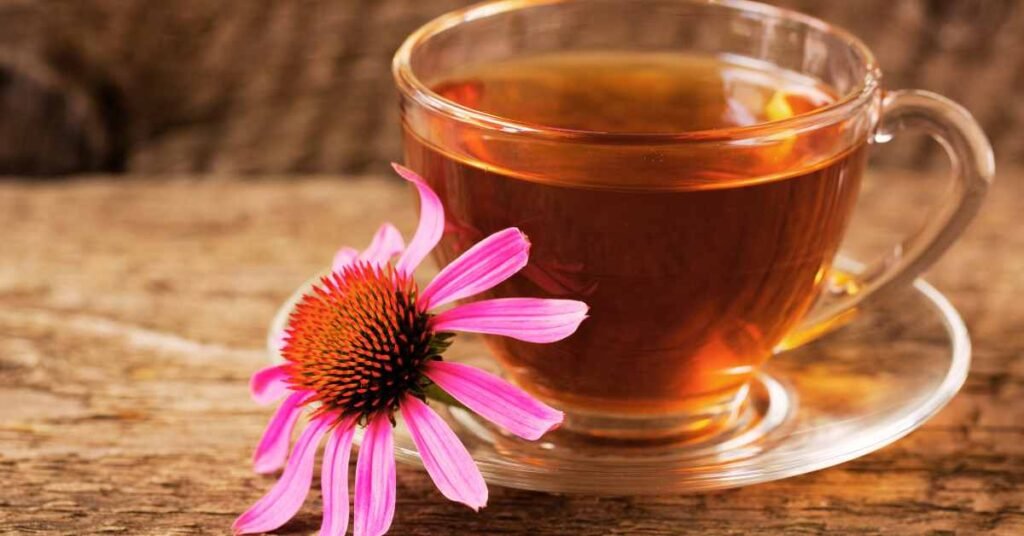Glandular fever (infectious mononucleosis) or the kissing disease, is a viral infection triggered by EBV or the Epstein-Barr virus.
It commonly affects adolescents and young adults, presenting with symptoms such as sore throat, fever, fatigue, and swollen lymph nodes.
While there is no specific cure for glandular fever, supportive measures, and a healthy lifestyle can aid in managing its symptoms.
One such natural remedy that has gained attention for its potential benefits is tea.
In this article, we will explore the various types of tea and their potential roles in easing symptoms and promoting recovery during glandular fever.
Green Tea: A Powerful Antioxidant Boost

Green tea is renowned for its rich antioxidant content, primarily in the form of polyphenols, catechins, and flavonoids.
These compounds possess anti-inflammatory properties that may help in reducing the severity of symptoms associated with glandular fever.
Additionally, the presence of epigallocatechin gallate (EGCG) in green tea has been linked to antiviral effects, potentially inhibiting the replication of viruses such as EBV.
Chamomile Tea: Soothing the Throat and Calming the Mind
Chamomile tea is known for its calming and anti-inflammatory properties.
During glandular fever, a sore throat is a common symptom, and chamomile tea can provide relief with its gentle, soothing effects.
Furthermore, chamomile has mild sedative properties, which can be beneficial for those experiencing difficulty sleeping due to the discomfort associated with the infection.
Peppermint Tea: Alleviating Digestive Discomfort

Glandular fever can often lead to digestive issues such as nausea and abdominal discomfort.
Peppermint tea, with its natural antispasmodic properties, can help soothe the digestive tract and alleviate these symptoms.
Moreover, the menthol in peppermint has a cooling effect that may provide relief for sore throats.
Ginger Tea: Boosting the Immune System
Ginger has long been valued for its immune-boosting properties. In the context of glandular fever, where a compromised immune system is common, ginger tea can play a supportive role.
Its anti-inflammatory and antiviral properties may aid in reducing symptoms and promoting a faster recovery. Additionally, ginger can help with nausea and improve overall digestion.
Lemon Balm Tea: Combating Stress and Anxiety
Lemon balm is a herb from the mint family that has been traditionally used for its calming effects.
Given that glandular fever can be emotionally taxing, with symptoms like fatigue and malaise, lemon balm tea may help alleviate stress and anxiety.
It is also known for its antiviral properties, potentially assisting the body in fighting the underlying viral infection.
Echinacea Tea: Strengthening the Immune Response

Echinacea is a well-known herb celebrated for its immune-boosting capabilities.
Drinking echinacea tea during glandular fever may support the immune system in its battle against the virus.
While more research is needed to establish its effectiveness specifically against EBV, echinacea’s historical use as an immune tonic makes it a potential ally in the recovery process.
Licorice Root Tea: Reducing Inflammation
Licorice root has anti-inflammatory properties and is often used in traditional medicine to soothe respiratory and throat conditions.
In the context of glandular fever, where inflammation of the throat and lymph nodes is common, licorice root tea may provide relief.
However, it’s important to consume licorice in moderation due to its potential impact on blood pressure.
Final Word
Tea, with its diverse array of flavors and therapeutic properties, can be a valuable addition to the holistic management of glandular fever.
While these teas may offer symptomatic relief and support the body’s natural healing processes, it is crucial to remember that they are not a substitute for medical advice and treatment.
Individuals with glandular fever should consult with healthcare professionals for a comprehensive and personalized approach to managing their condition.
Additionally, maintaining good hydration, a balanced diet, and sufficient rest are essential components of recovery from glandular fever.
MEDICAL DISCLAIMER
Itsnevernotteatime.com cannot and does not contain medical/health advice. The medical/health information is provided for general and educational purposes only and is not a substitute for professional advice.




